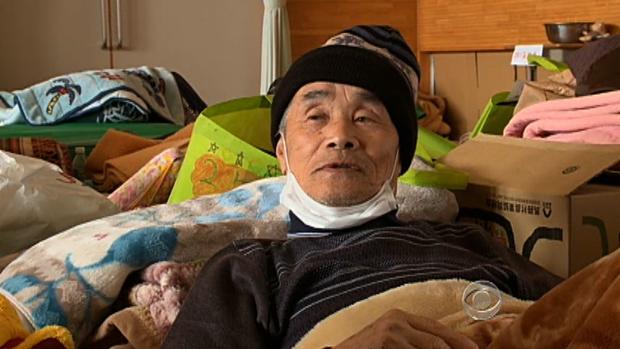The 3 factors that saved Koizumi's residents
Even covered by a blanket, wearing a ski cap and shielded by a paper face mask, I noticed 69-year-old Toichi Sato right away. There was a quiet dignity in the way his frail hands motioned for calm in the sea of children that swarmed around him. I had to know his story.
Correspondent Lucy Craft, photographer Randy Schmidt and I had just arrived at a shelter in Koizumi, Japan. We'd heard that this town, a sort of suburb of Kessenuma, had been completely flattened. The tsunami roared into the valley that harbored this town and carried everything in it out to sea.
Driving through the devastation, we made our way up to the evacuation center that had been set up in a school on a nearby hill. In the valley, not a single building remained standing. Our collective impression was that, in this town, survivors would be few. But those who did would have incredible stories to tell.
When we sat down to chat with Toichi Sato, we were not disappointed. He had been at home with his wife and 91-year-old mother when the earthquake hit. They tried to flee to higher ground, but couldn't quite make it in time.
"We were close to the water, so I wanted to get to higher ground. Then, the wave came, and carried us out to sea. I was holding tight onto my mother, but we were carried away." He told us that his mother was ripped out of his arms and then his world went black.
Complete coverage: Disaster in Japan
A Japanese town's miracle in the madness
"When I regained consciousness," Sato said, "I saw that my foot had hooked on the tree, and I was saved."
His mother did not make it. But in this town of 1,800, she was the exception rather than the rule. After speaking with Sato we discovered that in this whole town only 42 people were listed as dead or missing.
We were amazed, especially given that in neighboring Minamisanriku more than half the population of 17,000 were either dead or missing. Both towns were bowl-like valleys, so when the tsunami washed in, a wall of water hit the mountains and then retreated back into the sea. The motion of the waves had obliterated both towns - so why were there so few casualties in Koizumi?
We found it was a combination of three factors. The first, time of day. Sato told us, "The tsunami occurred during the afternoon. If it had been night, the casualties would surely have been far worse."
The second, 25-year-old Erika Iwabuchi explained to us, was their geography. When we asked why so many had survived in her town, she said, "Probably because our safety hill was so close to us. Other places probably had a greater distance to get to safety."
Nurse instrutor Emi Oikawa recounted the third and probably most significant factor...this town was ready. "When there's a quake, and its strong, we head for the hills." She said. "We know exactly where to go, because we practice, so it's second nature."
That second nature saved lives said local official Hiroshi Kikugawan, who was glad residents didn't wait to be told what to do. "We have disaster announcements, but if the electricity is out that's useless. And cell phones didn't work and couldn't transmit warning messages. The high tech didn't work."
And so this town of survivors has become a town of homeless refugees. They lost everything they had except the one thing they couldn't replace.
"It's a shock," Sato said, "but it's no one's fault. It's the tsunami's fault. So we have
to get on with our lives."
I kept asking myself, how does one even go about moving on from so much loss? Then, as we were driving down the hill, I saw him. An old man bundled from head to toe to protect against the weather. He had a small shovel and was just beginning the task of clearing what once must have been the driveway to his home.
Were it not heart breaking, it almost would have seemed comical. This little man, with this little shovel taking on the mountain of debris that covered the remains of his former life. He didn't look up from his work, probably because it was too daunting to really see the scope of the task that lay ahead.
